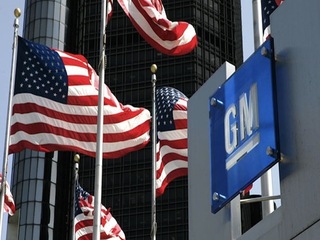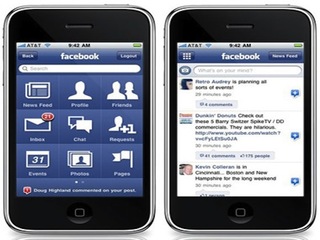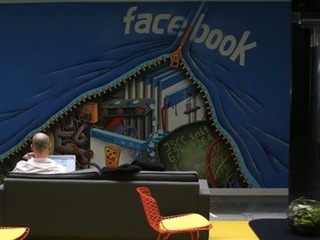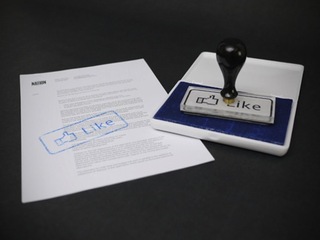
Facebook closes debut day just pennies above IPO price
The bang wasn't as big as many hoped but Facebook still closed above IPO price

Facebook hit the public markets at $42.05, with the share price rising 12.7% in the few minutes of trading before it finally closed at $38.37 (just shy of 1% above the $38 IPO price).
The shares came onto the NASDAQ around 11:30 am Eastern Time under the ticker symbol FB at a price of $38 each. Share prices rose quickly to $45 and then settled (momentarily) at $40. Analysts were expecting a lot of movement on this stock, but for the price to remained close to $40 throughout the rest of the day.
At $38 a share, the company valuation would be around $114 billion and the market cap is right at $105 billion. Facebook only experienced a 18% pop in its entire day of trading, over the IPO set price. That is not an exceptional pop in the Internet tech sector, especially considering the 100% jump that LinkedIn felt last year when it debuted on the public trading floor.
This does, however, mean that the underwritters were very prude about pricing the stock so that early investors and the company didn't leave much money on the table in this IPO. Many investors that were interested in getting a slice of Facebook at this point and feeling a huge bump, were sadly mistaken.
Facebook was so oversubscribed and heavily moved before trading opened that, even in a digital age, the company experienced delays in cancelling stock orders before entering NASDAQ. How diva of Facebook to arrive on the markets late. Many are curious whether Facebook or NASDAQ are to blame for keeping everyone waiting 15-30 minutes longer than expected.
Facebook priced its IPO at $38 per share on Thursday, at the top of previously set expectations. Now, everyone else that wasn't in on the ground floor has a chance to buy stock in Facebook for the first time. The stock now trades under ticker symbol NASDAQ:FB.
With 461.2 million shares for sale in order to raise a hair more than $16 billion, Facebook definatley made its big splash on Wall Street.
An opening price, not even in the teens of percents was less than many were hoping for, and the company quickly expereinced trading closer to the IPO price than the debut number, but there is a lot of trading left in the day and it could be anyone's game.
Even if Facebook stays close to $40, many early estimates placed that range as a safe bet because that is what the company was trading at on the secondary markets prior to its IPO filing.
The company that had net income of $205 million in the first three months of 2012, on revenue of $1.06 billion, was the talk of the town heading into the IPO and it seems to have paid off. In all of 2011, it earned $1 billion, up from $606 million a year earlier. That some serious improvement from 2007, when it posted a net loss of $138 million and revenue of $153 million.
Facebook's valuation is the third-highest in an IPO. Thus far, only two Chinese banks, Agricultural Bank of China in 2010 and Industrial and Commercial Bank of China in 2006, have been worth more. They were worth $133 billion and $132 billion, respectively.
Facebook ranks as third in U.S. IPOs. The largest was Visa, which raised $17.9 billion in 2008. No. 2 was Enel, a power company, and No. 4 was General Motors.
Earlier this morning, as excitement reached a boiling point in Facebook's Menlo Park headquarters, several of the people closely tied to the social network's humble beginnings in a Harvard dorm room and its early years in Palo Alto turned to the service to share their thoughts.
Randi Zuckerberg updated her Facebook status just moments before her brother rang the NASDAQ bell: Facebook has been a major part of my life and the lives of hundreds of millions of people around the world. I'm excited to see the company embark on this next chapter. Many congratulations to Mark and the entire Facebook team on today's tremendous milestone!.
Co-founder, and hub of expatriation controversy Eduardo Saverin updated his Facebook status: Congrats to everyone involved in the project from day one till today, and I especially wanted to congratulate Mark Zukerberg on keeping tremendous stead-fast focus, however hard that was, on making the world a more open and connected place.
As Facebook hit the public markets, other Internet tech companies felt a halt in trading, likely because all of the focus was on the new prettiest girl at the party. As of 11:07 a.m. EST, everyone from Angie's List to Pandora were stalled.

What the analysts were expecting
Most analysts are all of the mind that Facebook's debut will be nothing shot of amazing, but some believe that recent fiscal concerns could dampen, what many are hoping will be a poptastic day.
David Menlow, president of research firm IPOfinancial.com, isn't expecting a huge pop for Facebook. He has put out his prediction that it is unlikely the company will close the day with a double digit percentage gain..
But another indistry insider, and a suprising one at that, former CEO of MySpace Mike Jones is not shy about his high expectations of the company.
Jones stated in a note that Facebook’s being a household name certainly wouldn’t hurt it on IPO day. “People will just want to own the stock,” he said. “People will log into E-Trade and buy Facebook stock because they love it and use it everyday.”
|
The financial research firm, PrivCo anticipated a pop for Facebook given its considerable retail investor demand and media hype. However, PrivCo re-affirms its long-term fair value calculation of $25 share for Facebook. |
The fact of the matter of the matter is that Facebook shares will almost certainly disappoint investors who participate in the IPO, because the prices being bandied about simply don't reflect the numerous risks that are also part and parcel of the business," Dumtortier posted in Daily Finance this morning.
He even went on to state: Facebook's IPO will almost certainly represent a poor long-term investment at or above the IPO price. If you're looking for a little excitement, why not consider the dog races? If you're looking for an informed speculation, I suggest you wait until Facebook's IPO is "busted" and the shares trade below the IPO price.
I'd say we know where he stands in the company that everyone clammoring to get a piece of.

The long and bumpy road to IPO
Word had been circulating for more than a year when Facebook finally filed its first S-1, announcing its intent to go public this spring. The world defiantly stopped and took notice, especially at the opportunity to, at last, get a look under the hood of one of the largest tech companies ever (and most secretive too).
Eight years in the making, Facebook was ready to take down its mysterious cloak and reveal just how the business was making money.
With a user base that is now well over 900 million, Facebook was one of the few tech companies (especially Internet tech) that was going to enter its IPO profitable. Many analysts and experts were rushing to call this the $100 billion company -- and they were right.
Facebook appeared to be gearing up for IPO since mid-last year. The company was working on near constant roll-outs of new products and partnerships to show that this business was nowhere near full-saturation.
Facebook remained tight-lipped about when it will go public but the rumor mills are gaining fodder that the announcement and filing with the SEC could come before the close of the year.
Then in late November, some rumors started circulating that Facebook was in talks to get into the online gambling business -- at least in the UK.
Since November, Facebook launched two projects(closely tied and crucial changes to its service): Open Graph and Timeline. It was not as well known at the time, but these two offerings changed everything. This turned Facebook from a social network into a platform where apps could be launched, marketing could be better executed, and better targeting and personalization would help boost the monetization of the business.
In January, COO Sheryl Sandberg was at the DLD Conference in Munich touting the global (especially European) strength that Facebook has grown.
In the past year, Facebook has added $15.3 billion in value to the European economy, Sandberg shared. Businesses and governements are able to market, share, sell and gain perspective on Facebook and other social media, which has been highly lucrative for those that made the technology a part of their business plan.
Facebook is also setting up a small business marketing campaign where it will give 100€ in credits to 50,000 businesses for marketing on the site. The social network will work with local partners to dole out the credits to these small businesses.
All of these resent moves have poised the company to strike the markets hot and fast -- and now we all wait to see what the real numbers and growth will show. I have my highlighter ready.
The media coverage lately
Facebook's every move from February until now has been closely watched, scrutinized and tied back to the IPO. You couldn't read an online news article without the mention of how it impacted CEO Mark Zuckerberg billionaire status.

Everyone was sure that Facebook's IPO would change everything. The consensus has been that this IPO would be big, no matter what.
As Facebook continued to update its S-1 filings for IPO, it became clear that this company was not slowing down its efforts to prove itself to Wall Street.
Just weeks before pricing its stock, Facebook dropped $1 billion+ on the photo-sharing service Instagram.
The move seemed out of nowhere -- Instagram has, earlier that day, just announced its $50 million Series B round of funding from Sequoia, Thrive Capital Greylock, and Benchmark. No one in the tech sphere saw that series of events happening that close together.
But as word came out about just how many people were using the photo service came out, the acquisition didn't seem so far fetched. The popular photo-sharing app, which launched on Android last week, was expected to receive $50 million at a $500 million valuation, bringing the total funds raised to $57 million.
The app was an instant hit, reaching one million users in only two months after launching in October 2010 and also disclosed publicly that it was growing past 30 million users -- and saw 1 million downloads on Google Play with the Android release.
Facebook seemed to be sending a message that they were a powerhouse, willing to drop a lot of dough to beef up their tech and services for users.
Mobile concerns
With just one week to go before IPO, Facebook filed an S-1 document admitting that the mobile focus for the company has drastically slowed the pace that the company adds new users and could end up hurting the company revenue in the long run.
Since the original Facebook IPO filing, it has been understood that the company has still been grappling with how to truly monetize its mobile ecosphere since the platform doesn't incorporate Sponsored ads at the same rate as the browser-based platform.
Facebook has looked at the news feed to inject its paid advertisements rather than banner or side-bar ads but finding the right combination and testing it has not been as quick of a process as some may wish.
Advertising worries
Then, just days ago, GM announced that it would no longer pay Facebook for advertising on its site. The largest U.S. auto maker's news couldn't have come at a worse time.
What would this mean to the IPO? It would mean a shift in conversation, to say the least.
GM spends roughly $40 million on its Facebook presence -- and around $10 million of that is paid directly to Facebook for advertising. The remainder of the funds cover content created for the site, agencies that manage the content and daily maintenance of GM’s pages. Chopping out a quarter of a Facebook marketing budget is friendly to GM's bottom-line and leave Facebook in a precarious position: tiptoeing between the effectiveness of it Open Graph Pages features and its advertising revenue.
Analysts and research quickly followed, reminding the public that Facebook can't currently beat Google in the ad game, not without some serious changes.
Greenlight, an independent digital marketing agency, released results of a global survey yesterday that that revealed 30% of people 'strongly distrust' Facebook with their personal data whilst 44% say they would ‘never’ click on Facebook sponsored ads. Not the best numbers coming out just hours before the company prices its stock.
It hasn't been a secret that the average click-through rate for Facebook ads leaves a lot to be desired -- since, on average the rate is .05%, roughly 10 times less effective than Google’s display ad network, according to Wordstream, and Internet marketing software and tools company.
Many are looking at the ad formats themselves as a reason why Facebook is less effective in converting browsers to traffic paid ads. The ads are very straightforward, like cutting and pasting an ad into a newspaper or magazine. Google ads often have more flexibility in what can displayed.
One of Wordstream's analysts, Larry Kim posted a blog recently, outlining why Facebook is not competitive enough with it Google ad counterpart.
But none of these factors seem to slow down the Facebook machine, which plows ahead and continues to break records, while proving that it is unlike any other company out there -- for now.
Now that all of that anticipation has finally burst, no matter how the company does, it is clear that Facebook is money. This jam goes out to all those that are going to spend the rest of the month counting their profits.
Related News

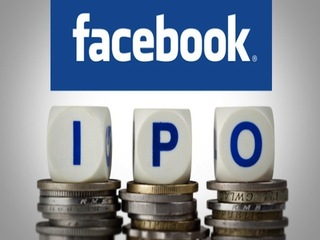
Facebook files $5B IPO, the biggest Internet IPO ever
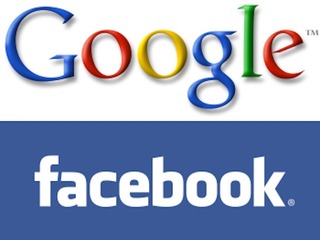
Facebook paid ads: Concerns continue around IPO time
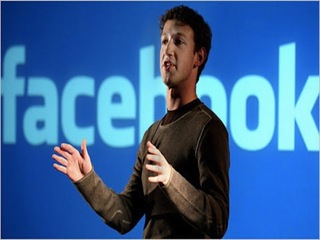
Facebook aggressivly showing innovation, pre-IPO

Facebook snaps up Instagram for $1B in cash, stock
